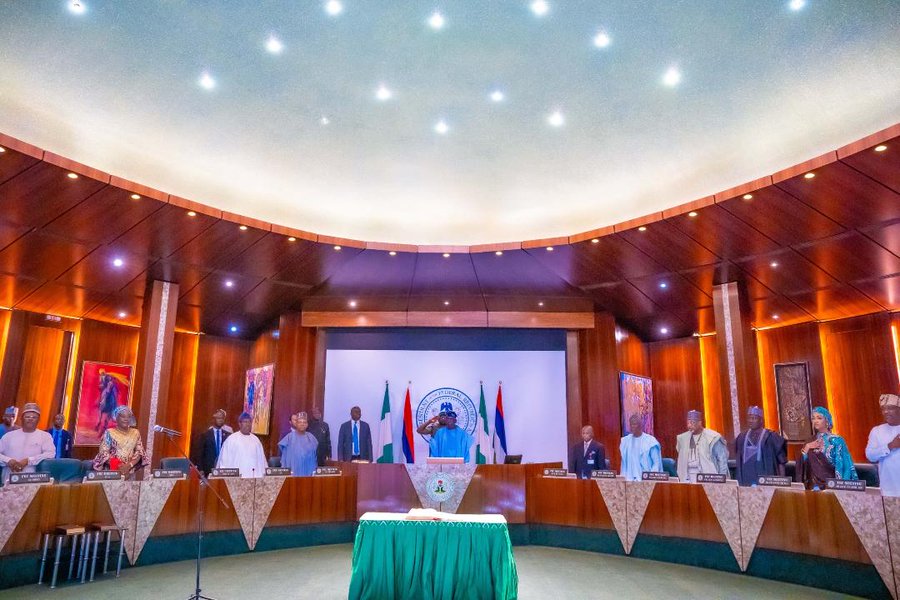By Joke Kujenya
THE LATEST meeting of Nigeria’s Federal Executive Council (FEC) has been concluded, spanning May 13th and 14th, 2024, with a series of far-reaching decisions aimed at bolstering Nigeria’s economy and enhancing its infrastructure.
These decisions, ratified after extensive deliberations, encompass policies and projects intended to stimulate economic growth, attract investments, and streamline business operations across the nation.
Revolutionizing Infrastructure and Housing Sector: The FEC has thrown its weight behind a set of initiatives poised to reshape Nigeria’s Infrastructure and Housing sector through strategic Public-Private Partnerships (PPP).
These initiatives, with a potential unlocking capacity of approximately N2 trillion, are geared towards overhauling the nation’s infrastructure landscape and addressing the critical need for affordable housing.
The envisioned 25-year mortgages at low-interest rates aim to democratize homeownership and stimulate economic activity, including job creation and inclusive growth.
Federal Airport Toll Implementation: In a significant move, FEC approved the imposition of tolls at all Federal airports across the country, marking a departure from the previous practice.
Notably, this toll requirement extends to all users, including the President and Vice President of Nigeria, signaling a commitment to equitable application of policies.
Ban on Sand Dredging: The council has announced a ban on sand dredging within a 10-kilometer radius of all Federal bridges nationwide, a measure aimed at safeguarding critical infrastructure and preserving ecological balance.
Visa Policy Review: Recognizing the pivotal role of a streamlined visa policy in facilitating business and tourism, FEC has mandated a comprehensive review of Nigeria’s visa regulations.
The proposed changes, including online visa applications and expedited processing within 48 hours, seek to enhance the ease of doing business and promote tourism, potentially waiving visa requirements for citizens of select countries.
Enhancing Airport Capabilities: FEC approved the procurement and installation of a disabled aircraft recovery system at Murtala Muhammed Airport in Lagos, a critical investment in aviation safety and operational efficiency.
Expanding Internet Connectivity: To address the digital divide and boost internet access, the council greenlit the creation of a Special Purpose Vehicle (SPV) on a PPP basis to deploy 90,000 kilometers of fiber optic cable, aiming for a substantial increase in Nigeria’s internet connectivity.
Remittance Reconciliation: In a bid to optimize revenue streams, FEC approved consultancy services for the reconciliation and expansion of remittances to the National Information Technology Development Agency (NITDA).
Establishing Digital Technology Hub: The Ministry of Communications received the green light to convert a property in San Francisco, USA, into a Nigerian Digital Technology Exchange Programme Hub, reflecting Nigeria’s commitment to technological advancement and innovation.
Transport Infrastructure Development: Significant investments were earmarked for the construction of bus terminals and transport facilities in Abuja, aimed at enhancing urban mobility and commuter experience within the Federal Capital Territory.
Road Infrastructure Projects: FEC approved numerous road construction projects across various states, including the reconstruction of critical highways and the development of bypasses and superhighways, underscoring the government’s commitment to improving transportation infrastructure nationwide.





